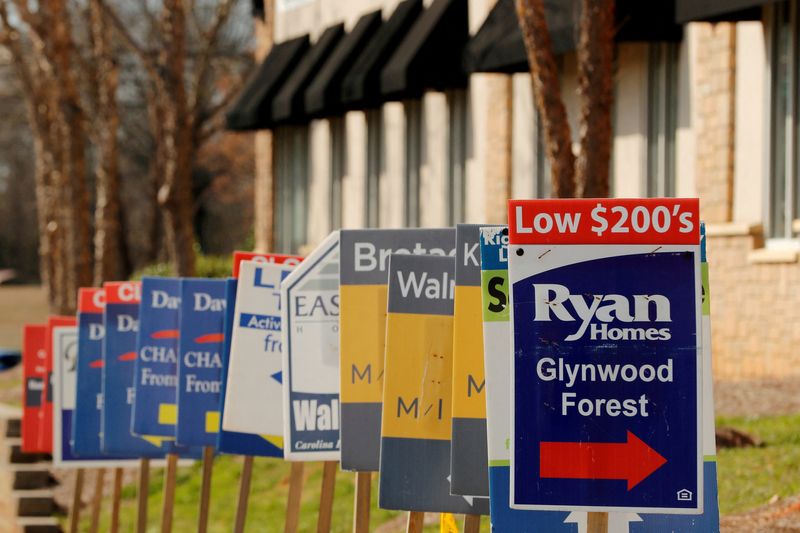By David Lawder
WASHINGTON (Reuters) - The U.S. Treasury Department said on Friday that state programs using its COVID-19 Homeowner Assistance Fund distributed $1.2 billion in aid to homeowners in the first quarter of this year, bringing the program's total payments to $3.7 billion so far.
Payments from the $10 billion program, launched as part of President Joe Biden's pandemic-related 2021 American Rescue Plan Act, have reached more than 318,000 households at risk of foreclosure, the department said.
The program has benefited a higher proportion of economically vulnerable and traditionally underserved homeowners than previous federal mortgage aid efforts, it added. Nearly half of the assistance has reached "very low-income homeowners" earning less than 50% of their area's median income, according to the Treasury data.
"The Homeowner Assistance Fund has helped keep hundreds of thousands of families in their homes," Deputy Secretary of the Treasury Wally Adeyemo said. "As state programs assess their remaining HAF funds, the Treasury Department will continue working with recipients to ensure these funds are swiftly delivered to homeowners most in need."
The data showed that 35% of the homeowners who received aid self-identified as Black, 23% as Hispanic/Latino and 59% as female.

The program was designed to ramp up after COVID foreclosure moratoriums had expired and mortgage forbearance programs had wound down by early 2022.
It was spared from COVID aid funding clawbacks in last month's bipartisan deal to raise the federal debt ceiling because the funds already had been transferred to state programs that process applications from homeowners suffering hardships. Like other COVID-related aid programs, any remaining resources in Homeowner Assistance Fund expire on Sept. 30, 2025.